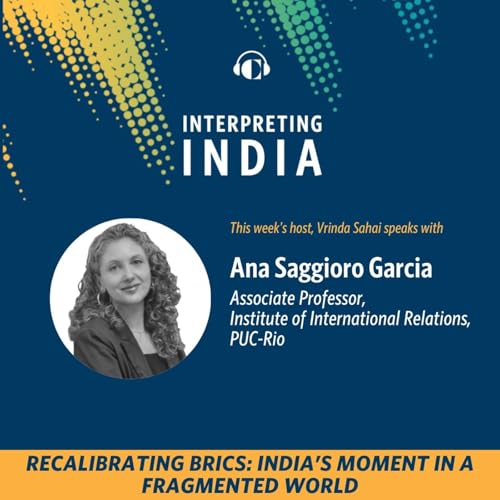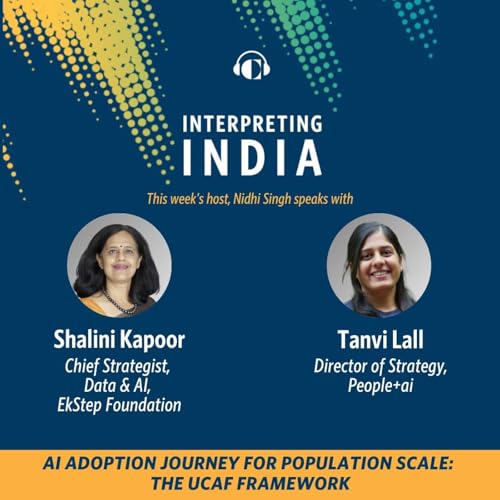AI progress is often measured by the number of pilots launched, but this episode argues the real unit of progress should be how many AI use cases are reliably in production and embedded into everyday systems. Shalini Kapoor distinguishes AI innovation (models, chips, and breakthroughs) from AI adoption, emphasizing that adoption is frequently harder because it demands institutional integration, behavior change, and clear accountability—especially when AI advice affects livelihoods, health outcomes, or legal decisions.
Tanvi Lall explains “pilot purgatory” as the frustrating middle state where use cases never move beyond controlled deployments. She shares how recurring barriers—compute constraints within real institutions (not just cloud credits), fragmented workflows, late-stage safety design, lack of sustained funding, and weak organizational readiness—prevent diffusion. The conversation highlights the UCAF approach to defining a use case as a commitment to improve a specific outcome for a specific persona in a specific context, and why trust and accountability are as central as the technology layer.
The episode also explores “horizontal enablers” that make scale possible—data readiness, multilingual language support, voice interfaces for last-mile access, workforce integration, and guardrails. A detailed example (Mahavistar in Maharashtra) illustrates what scaling can look like when government partnership, data pipelines, voice infrastructure, safeguards, and long-term funding align. Finally, the guests look ahead to what AI adoption in India could look like over the next five years, arguing that the most impactful AI will feel “ordinary”—quietly embedded into routine decisions—supported by shared adoption infrastructure rather than one-off pilots.
Episode Contributors
Nidhi Singh is a Senior Research Analyst at Carnegie India.
Shalini Kapoor is the Chief Strategist for Data and AI at the EkStep Foundation. Her work focuses on building practical pathways for AI adoption, with emphasis on institutional integration, accountable systems, and population-scale impact.
Tanvi Lall is the Director for Strategy at People Plus AI. Her work focuses on AI use cases, adoption barriers, and developing frameworks that help move AI from pilots to sustained deployment and real-world outcomes.
00:00 Introduction to AI Adoption Challenges
01:37 Understanding AI Adoption vs. Innovation
04:55 Pilot Purgatory: The Stagnation of AI Projects
08:48 Fragmented Adoption: Real-World Examples
12:13 Barriers to AI Adoption: Mindset and Behavior Change
16:01 Defining Good AI Use Cases
20:00 Horizontal Enablers for AI Success
26:26 Case Study: Mahavistar's Impact on Farmers
34:34 Future of AI Adoption in India
40:29 Optimism for AI Diffusion and Adoption
Readings
AI Adoption Journey for Population Scale by Shalini Kapoor and Tanvi Lall
Every two weeks, Interpreting India brings you diverse voices from India and around the world to explore the critical questions shaping the nation's future. We delve into how technology, the economy, and foreign policy intertwine to influence India's relationship with the global stage.
As a Carnegie India production, hosted by Carnegie scholars, Interpreting India, a Carnegie India production, provides insightful perspectives and cutting-edge by tackling the defining questions that chart India's course through the next decade.
Stay tuned for thought-provoking discussions, expert insights, and a deeper understanding of India's place in the world.
Don't forget to subscribe, share, and leave a review to join the conversation and be part of Interpreting India's journey.
 54 m
54 m 37 m
37 m 47 m
47 m 45 m
45 m Oct 31 202537 m
Oct 31 202537 m Oct 16 202548 m
Oct 16 202548 m 50 m
50 m 55 m
55 m
